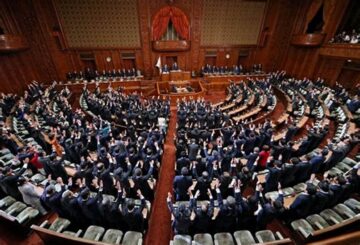According to media reports, during the last eight years of the Buhari administration, the Nigerian President, Major General Muhammadu Buhari (ret.), Vice President Yemi Osinbajo, state governors, and their deputies may have received around N651.2 million in hardship allowance.
The stipend, which is 50% of the annual base wage, is also given to judges in the nation.
The document that details the funding given to the president, vice president, state governors, and their appointees can be found on the website of the Revenue Mobilisation and Fiscal Allocation Commission.
The RMAFC paper said that the president is eligible for a hardship stipend of N1.76 million each year. Buhari would have received N14.08 million in hardship allowance over the course of eight years if this were the case.
Since the vice president is entitled to N1.52 million yearly, Osinbajo would have received N12.16 million in hardship compensation after eight years.
While a state governor is eligible for N1.11 million a year, a deputy state governor is only eligible for N1.06 million.
The hardship allowance for the 36 state governors would have consumed N319.68 million in eight years, and N305.28 million for their deputies.
As Buhari spends his final days in office, labour unions recently gave the government and state governors a poor rating, claiming that they had reduced employees to poverty and caused misery for Nigerians.
They bemoaned the nation’s skyrocketing inflation, which, in their opinion, had undermined the recent wage increase of 40% that the Federal Government had approved with effect from January.
Hakeem Ambali, the national treasurer of the Nigeria Labour Congress, claimed that the working class in Nigeria had endured severe poverty and suffering under the previous administration.
He claims that under Buhari, the workforce has seen job losses, employment insecurity, financial hardship, and other catastrophes.
According to Ambali, who also serves as the president of the National Union of Local Government Employees, “Under Buhari’s administration, just like every other successive administration, we have witnessed so many losses of jobs. Some governors laid off so many workers in the North, East and West. There has been a loss of lives as a result of banditry and kidnapping, especially in the South-East, South-West and in the whole North.
“As for today from my union, the National Union of Local Government Employees, we reside and work within the remote part of the country; any attack on government installations and infrastructure affect our people. Most of them were kidnapped in Kaduna.
“Also, one will realise that the road network is so poor. The erratic power supply has also reduced chances of Nigerians getting their daily living.’’
In the meantime, Dr. Duru Hezekiah, the IHRC’s Head of Diplomatic Missions in Nigeria and the organisation’s At-Large Ambassador, cautioned that if the poverty rate were not quickly addressed, it would be a recipe for disaster.
“We are really in an economic crisis. And if it’s not checked, I tell you, the time is coming when will go into a fiasco, a time is coming when in fact, Nigeria will be declared a ‘hunger country’, and that is why we are still appealing to the government,” he said.





